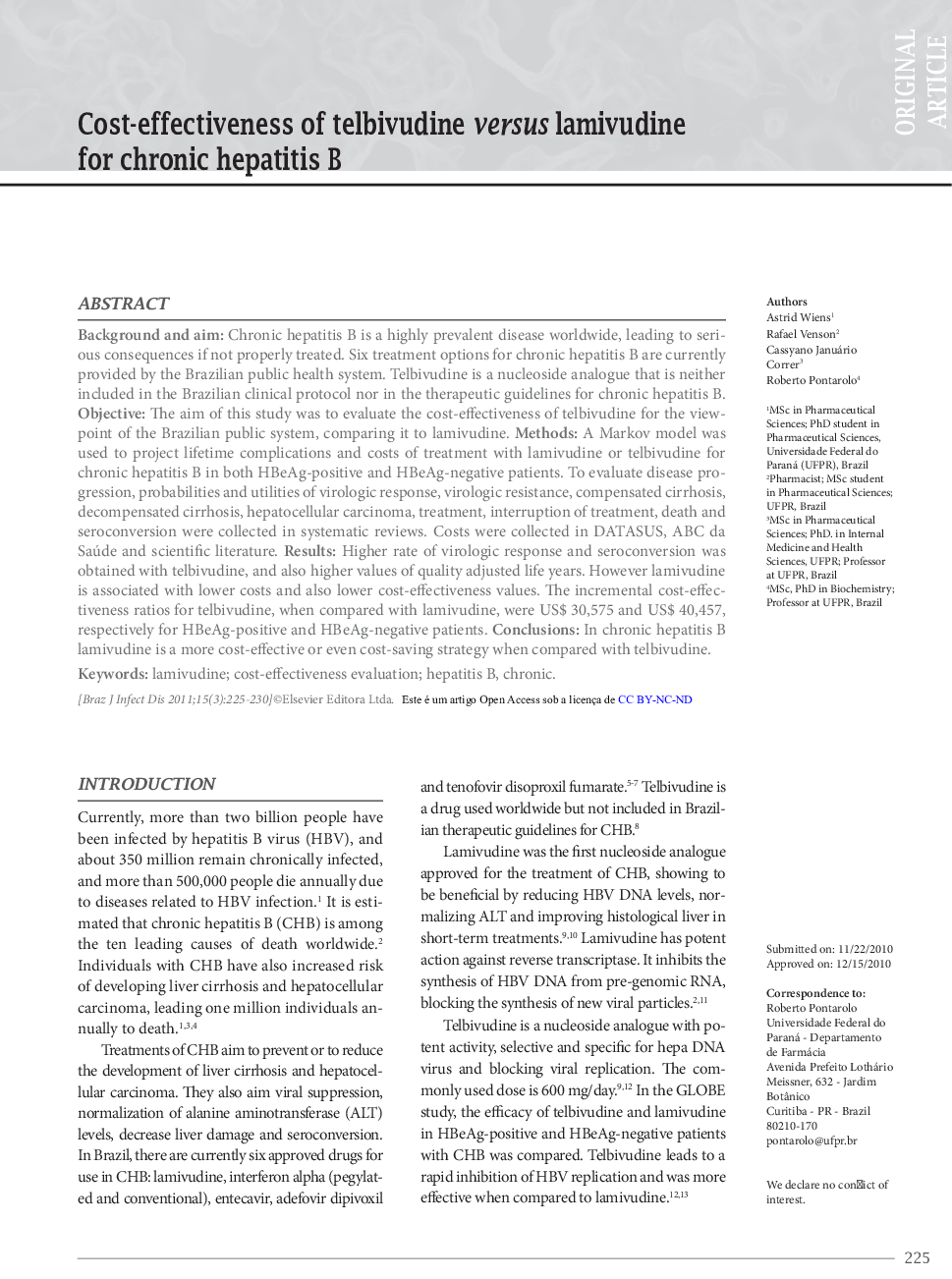| Article ID | Journal | Published Year | Pages | File Type |
|---|---|---|---|---|
| 3344411 | The Brazilian Journal of Infectious Diseases | 2011 | 6 Pages |
Background and aimChronic hepatitis B is a highly prevalent disease worldwide, leading to serious consequences if not properly treated. Six treatment options for chronic hepatitis B are currently provided by the Brazilian public health system. Telbivudine is a nucleoside analogue that is neither included in the Brazilian clinical protocol nor in the therapeutic guidelines for chronic hepatitis B.ObjectiveThe aim of this study was to evaluate the cost-effectiveness of telbivudine for the viewpoint of the Brazilian public system, comparing it to lamivudine.MethodsA Markov model was used to project lifetime complications and costs of treatment with lamivudine or telbivudine for chronic hepatitis B in both HBeAg-positive and HBeAg-negative patients. To evaluate disease progression, probabilities and utilities of virologic response, virologic resistance, compensated cirrhosis, decompensated cirrhosis, hepatocellular carcinoma, treatment, interruption of treatment, death and seroconversion were collected in systematic reviews. Costs were collected in DATASUS, ABC da Saúde and scientific literature.ResultsHigher rate of virologic response and seroconversion was obtained with telbivudine, and also higher values of quality adjusted life years. However lamivudine is associated with lower costs and also lower cost-effectiveness values. The incremental cost-effectiveness ratios for telbivudine, when compared with lamivudine, were US$ 30,575 and US$ 40,457, respectively for HBeAg-positive and HBeAg-negative patients.ConclusionsIn chronic hepatitis B lamivudine is a more cost-effective or even cost-saving strategy when compared with telbivudine
